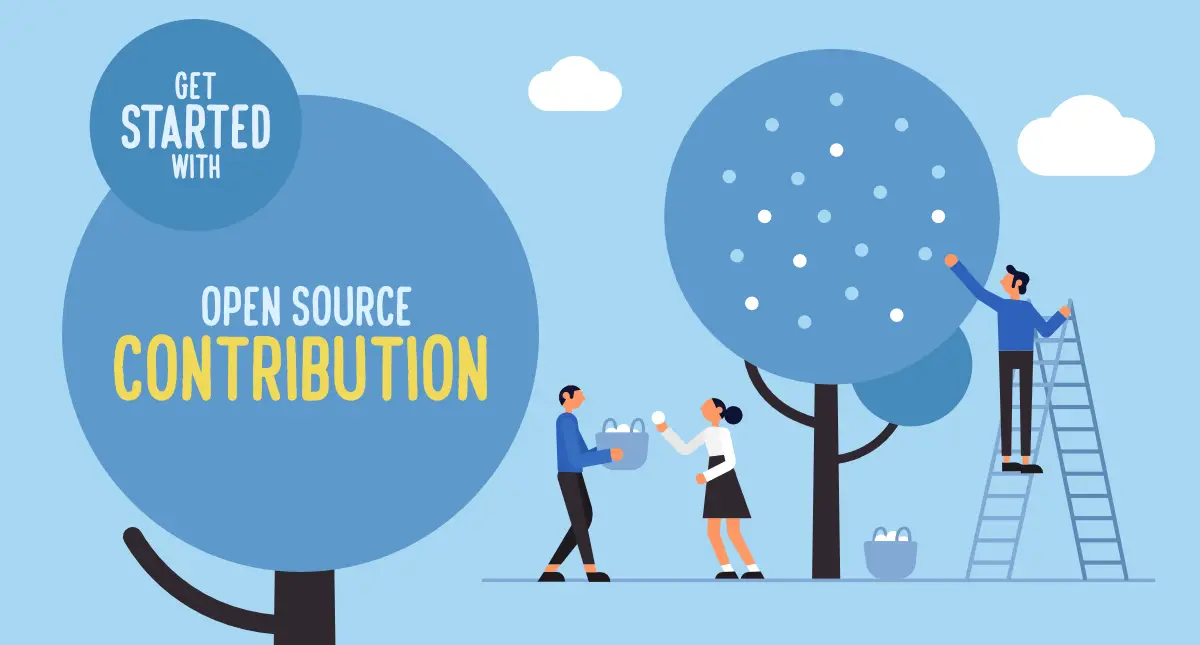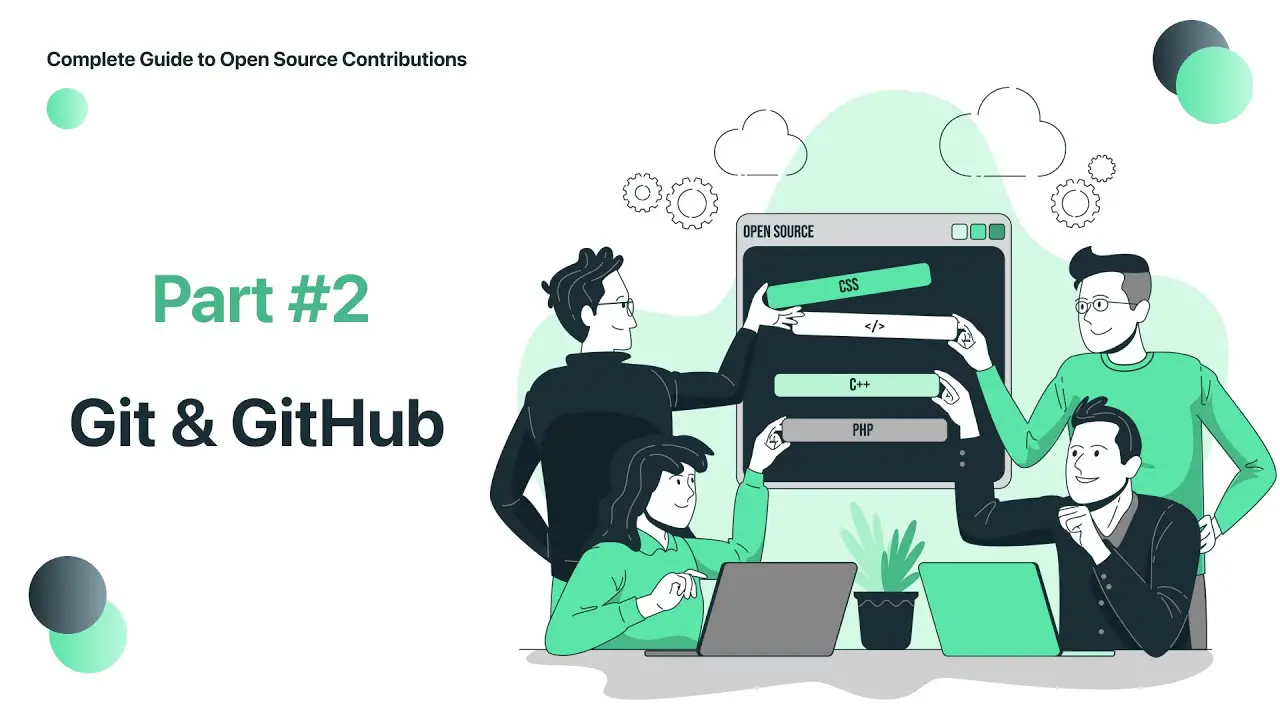Navigating the World of Open Source Contributions

Executive Summary

Open source contributions have become an integral part of the modern software development landscape. By participating in open source projects, developers can gain valuable experience, collaborate with talented individuals, and make a meaningful impact on the technology ecosystem. This article provides a comprehensive guide to the world of open source contributions, covering the essential steps, best practices, and potential benefits involved.

Introduction
Open source software encompasses a wide range of freely accessible and modifiable codebases. Contributions to these projects can take various forms, including bug fixes, feature enhancements, documentation improvements, and community support. By embracing the open source ethos of collaboration and transparency, individuals can contribute not only to specific projects but also to broader advancements in software development.
Identifying Contribution Opportunities
Finding the right open source projects to contribute to can be a daunting task. Here are some key strategies:
- Explore popular platforms: GitHub and GitLab host a vast repository of open source projects, making it easy to search and discover projects based on language, topic, and popularity.
- Attend open source events: Meetups, hackathons, and conferences provide an excellent opportunity to connect with project maintainers and discuss potential contribution opportunities.
- Engage with online communities: Participate in project forums, mailing lists, and social media groups to identify pain points and areas where contributions are needed.
Preparing for Effective Contributions
Before making your first contribution, it’s crucial to understand the project’s guidelines and development process:
- Review the documentation: Carefully study the project’s documentation, including its contributing guidelines, coding standards, and version control system.
- Set up your development environment: Ensure you have the required software and dependencies installed to build and test the project locally.
- Establish a沟通plan: Determine the best way to communicate with project maintainers and other contributors, such as through email, instant messaging, or code comments.
Types of Contributions
Contributions to open source projects come in many forms. Here are some of the most common types:
Bug Fixes
- Identify and resolve reported bugs or issues in the codebase.
- Thoroughly test and verify that the bug has been fixed.
- Document the bug fix clearly with a Pull Request.
Feature Enhancements
- Add new features or improve existing functionality based on user feedback or community requests.
- Design and implement the enhancement in a maintainable and testable manner.
- Write detailed documentation or usage guides for the new feature.
Documentation Improvements
- Contribute to project documentation by creating new content, updating existing documentation, or translating it into different languages.
- Ensure that the documentation is clear, accurate, and up-to-date.
- Collaborate with other contributors to improve the overall quality of the documentation.
Testing and Quality Assurance
- Write test cases to verify the correctness and functionality of the codebase.
- Conduct thorough testing of new features and bug fixes to ensure their quality.
- Report any issues or defects promptly to project maintainers.
Community Support
- Participate in project forums and mailing lists to answer questions and provide support to other users.
- Create tutorial videos or presentations to educate the community on the project’s functionalities.
- Suggest improvements to the project’s workflow or organization based on user feedback.
Conclusion
Open source contributions offer a unique opportunity for developers to expand their knowledge, build their skills, and contribute to the digital world. By following the guidelines and best practices outlined in this article, individuals can navigate the world of open source effectively, make valuable contributions, and enjoy the rewards of being part of a thriving collaborative ecosystem.
Keyword Phrase Tags
- Open Source Contributions
- Bug Fixes
- Feature Enhancements
- Documentation Improvements
- Community Support
FAQs
-
Do I need to be an experienced developer to contribute to open source projects?
No, while experience can be helpful, it’s not a prerequisite for contributing. Many projects welcome contributions from individuals with all levels of experience. -
How do I choose the right project to contribute to?
Identify projects that align with your interests, skillset, and availability. Explore popular platforms, attend community events, and engage online to find opportunities that match your abilities. -
How can I ensure the quality of my contributions?
Follow project guidelines, test your code thoroughly, document your changes clearly, and seek feedback from other contributors before submitting your Pull Request. -
What are the benefits of contributing to open source projects?
Contributions offer valuable experience, skill development, networking opportunities, and the satisfaction of making a meaningful impact on the software community. -
How can I contribute if I’m not a coder?
Contributions can extend beyond coding. Documentation improvements, testing, community support, and graphic design are all valuable ways to participate in open source projects.

OMG, this is grate stuff! Thanks for shering!
I’ve herd of open source software, but i dint know that you could contribute. This rocks!
I don’t no If I can do this. I’ve never done programing before
Is there a list of open source projects that need help?
I think that you should focus on your own projects instead of contributing to open source. It’s a waste of time!
So, you’re telling me that I can help out with open source projects? How ironic, since I’m not very good at coding!
Yeah, sure, I’ll just start contributing to open source projects right now. Like I have nothing better to do!
I’ve been contributing to open source projects for years, and I can tell you that it’s a lot like herding cats!
This is a great guide! I’m sure it will help a lot of people get started with open source contributions.
I found this article really helpful. I’m going to start looking for open source projects to contribute to right now!
This is a very informative article. I learned a lot about the process of contributing to open source projects.
I disagree with the author’s suggestion that we should start with small tasks. I think it’s better to start with something challenging so that you can really learn and grow.
Oh, so you’re telling me that I can contribute to open source projects and make a difference? How groundbreaking!
My cat is more experienced in open source contributions than I am!
I’m not sure if I’m up to the task. I don’t think I’m a very good programmer.